COVID-19 in the Workplace: OSHA Issues Enforcement Guidance

COVID-19 in the Workplace: OSHA Issues Enforcement Guidance
April 13, 2020
On April 13, 2020, the Occupational Safety and Health Administration ("OSHA") issued new enforcement guidance ("Guidance") addressing how employers should comply with OSHA's illness and injury recordkeeping and reporting requirements when responding to COVID-19 in the workplace. OSHA's Guidance attempts to resolve some of the challenges associated with tracking, recording, and reporting cases of COVID-19 using an OSHA 300 Log and separately addresses certain industries with higher risk factors (e.g., healthcare, emergency response, and correctional institutions).
OSHA's recording and reporting standard ("Standard") requires employers to maintain records and report certain work-related fatalities, injuries, and illnesses. As a threshold issue, to trigger the Standard's requirements, the fatality, injury, or illness must be work-related (i.e., "an event or exposure in the work environment either caused or contributed to the resulting condition or significantly aggravated a pre-existing injury or illness."). Prior to the release of the Guidance, OSHA maintained that cases of COVID-19 were OSHA-reportable events requiring work-relatedness determinations. Due to the potential for transmission of COVID-19 outside of the work environment, however, many employers have been uncertain as to whether confirmed cases of COVID-19 are sufficiently work-related to trigger the Standard's recordkeeping and reporting requirements.
In response, OSHA's Guidance now provides enforcement discretion for most industries when determining whether to record and report confirmed cases of COVID-19 on an OSHA 300 Log. Except for employers engaged in the healthcare, emergency response, and correctional industries, the Guidance indicates that OSHA will exercise its enforcement discretion by not requiring employers to make work-relatedness determinations for cases of COVID-19 while ongoing community transmission persists, with few exceptions.
Specifically, employers should take caution because OSHA may nonetheless enforce the Standard where "objective evidence" is "reasonably available to the employer" that indicates a case of COVID-19 "may be work-related." Under such circumstances, the employer must comply with the Standard and complete a work-relatedness determination. Additionally, employers engaged in the healthcare, emergency response, or correctional industries must continue to fully comply with the Standard and make work-relatedness determinations for confirmed cases of COVID-19.
For assistance in addressing any environmental, health, and safety issues, McNees attorneys remain available to assist you 24/7 as the need arises:
Steve Matzura (smatzura@mcneeslaw.com) (Mobile: 570.205.3878);
Andrew Levy (alevy@mcneeslaw.com); and
Errin McCaulley (emccaulley@mcneeslaw.com).
Regular updates concerning COVID-19 are also posted on the McNees COVID-19 Resource Page.





